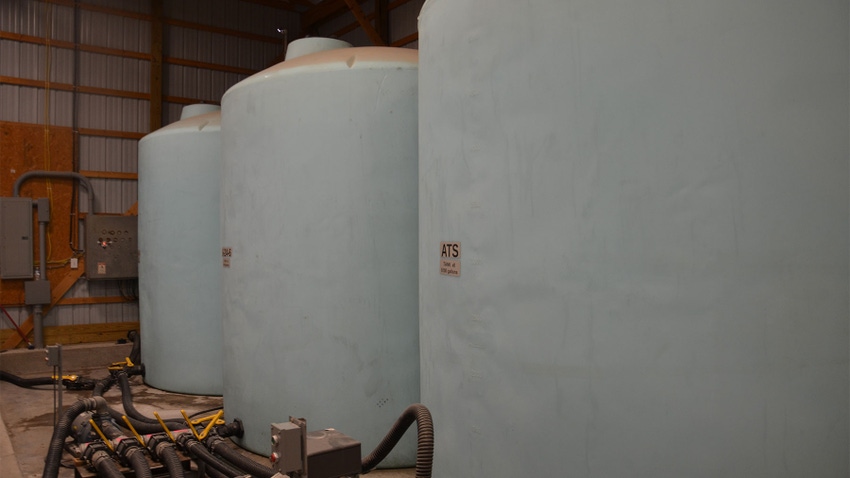July 19, 2023

We want the capability to lock in next year’s fertilizer supplies and were planning to put up storage tanks and a dike. Fertilizer prices were still high this spring, so we shelved it. Will there be off-season buying opportunities again? Should we invest in a facility?
Profit Planners panelists include David Erickson, farmer, Altona, Ill.; Mark Evans, Purdue Extension educator, Putnam County, Ind.; Jim Luzar, retired Purdue Extension educator and landowner, Greencastle, Ind.; and Steve Myers, farm manager with Busey Ag Resources, LeRoy, Ill.
Erickson: I do not know about potential price-saving opportunities, but consider all costs associated with on-farm fertilizer storage in comparison to your current buying options. Beyond costs for tanks and diking, there is a need for increased insurance coverage for loss, damage and spills. All fertilizers are corrosive on equipment, particularly pumps, so maintenance costs are significant.
Have an in-depth conversation with your current fertilizer supplier to outline your potential investment. See if an agreement can be negotiated to improve your pricing structure without the facility investment.
Evans: Fertilizer seems somewhat like fuel, as prices of the two commodities have linkage and are essential. If you have the operation size to benefit with purchasing power and lock in prices as you pencil the cost-benefit, it would certainly be an appropriate insurance measure and hedge. Ask yourself some questions: Are you willing to take on the environmental risk? Are you sure you’re covered in the event of an accident or containment failure? Are you willing to make the adjustments as regulations change and reporting rules are updated?
Ultimately, it is a question of whether you want the additional management work. Are you willing to make strong efforts to be good at speculating in the fertilizer market?
Luzar: The last couple of years taught us that the fertilizer industry is global and can be impacted by several factors. The days of fertilizer supply outpacing demand seem a distant memory now. But with fertilizer supply being inelastic, we learned that increased demand, supply disruptions and global events like a trade dispute can make fertilizer prices ratchet upward.
Many factors are very difficult to forecast. We do know higher commodity prices will impact fertilizer demand. Against this backdrop of uncertainty, take a hard look at your investment in facilities, and think about returns to fertilizer storage that may be more erratic than steady. Look at all your costs for owning tanks and dikes: depreciation, interest, taxes, maintenance. There may be years like 2023 where your investment doesn’t provide adequate payback.
You currently have a relationship with a dealer to provide storage for you. I would discuss your concerns with him. You’re not going to beat predicting prices for a global commodity. Can modest returns to storage cover your investment? What is the value of having product secured and available? Maybe the best take-home message is to expect returns to not behave like returns to grain storage.
Myers: It appears, at this time, that those prices have softened, which may offer buying opportunity. Aside from these short-term gyrations, consider the long-term implications of adding this storage. This includes cost of the storage compared to savings based on historical spreads of off-season vs. in-season purchasing and potential bulk discounts. Focus on those spreads to analyze return on investment.
Read more about:
FertilizerYou May Also Like




